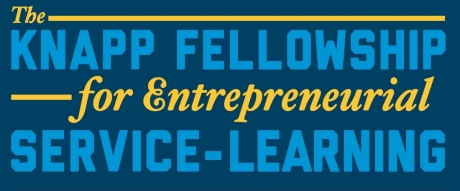This is a great opportunity for STEM fields to engage in community engaged scholarship.
Registration
Deadline is May 25, 2018
EPICS is an engineering-based, service-learning approach to multi-disciplinary design where student teams address needs within their local and global communities. Founded at Purdue University, EPICS has been integrated into the curricula at 42 universities and colleges. EPICS in IEEE, a signature program of IEEE, empowers students to work with local service organizations by applying technical knowledge to implement solutions for a community’s unique challenges.
This year’s gathering will bring together three groups for a synergistic set of workshops, panel discussions and roundtables. These three groups are:
- New Faculty, instructors; staff professionals; IEEE volunteers and members; industry partners and others interested in learning about the EPICS model for Engineering/Computing-based Service-Learning and Community Engagement
- Experienced EPICS leaders, faculty, instructors, administrators, students and partners from the member institutions of the EPICS Consortium
- International EPICS leaders, faculty, instructors, administrators, students and partners especially from India including our IUCEE-EPICS institutions
The symposium and workshop have special slots for each group (Monday for those new to EPICS, Thursday and Friday will focus on India). Tuesday and Wednesday will be a mix of interactions between groups with opportunities for discussions around common interests.
How You Benefit
• Gain a better understanding of engineering-based community engagement
• See examples of ways EPICS can be integrated into course curriculum and capstone projects
• Develop the skills to gain institutional support, acquire community and industry sponsors, establish funding models and build a sustainable program
• Gain insights from experienced leaders on how to engage students; identify, create and sustain projects; and conduct student assessments
• Network with established EPICS colleagues as well other interested facility members, industry and community leaders
• Learn how to make connections globally across programs
• Leave the workshop prepared to put what you learned into practice in order to grow, institutionalize or establish an EPICS program at your institution
Workshop Details
Date: June 11-15, 2018
June 11 – for those new to EPICS
(all participants invited to the welcome reception on the evening of the 11th )
June 12-13 – for all participants, sessions led by EPICS faculty from multiple institutions
June 14-15 – focus integrating EPICS into the Indian engineering curriculum and similar models
Where: Purdue University, West Lafayette, Indiana
Registration Fees:
$200 June 11-13 (includes Tuesday and Wednesday meals and Monday welcome reception)
$400 Full week (June 11-15 and includes Tuesday - Friday meals and Monday welcome reception)
Participants are expected to cover their lodging costs and travel to the workshop. A room block is available on Purdue’s Campus at the Purdue Union Club Hotel from June 11-15.
Questions can be forwarded to
Eric VandeVoorde at +1-765-494-3750 or evandevo@purdue.edu or
Dr. William Oakes at oakes@purdue.edu
https://www.conf.purdue.edu/landing_pages/epicsdesign/




